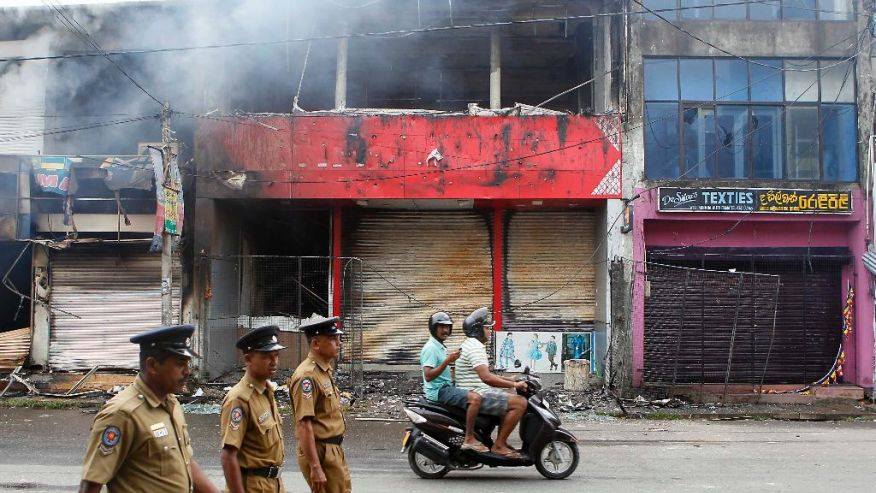Sri Lanka has imposed a nationwide state of emergency for the first time since the civil war era in response to days of violent unrest between Sinhalese and Muslim communities.
The special measures permitting soldiers to be deployed in civilian areas will initially apply for 10 days, at which point the deployment would need to be ratified by parliament, said Mano Ganesan, the Sri Lankan minister for co-existence. “There were concerns that communal violence would spread,” Ganesan told the Guardian. “We don’t want to spread communal disharmony and hate speech.”
Arson attacks and riots have hit the central district of Kandy in recent days and there was similar violence in late February when mobs set fire to Muslim-owned businesses and a mosque in the east. The violence in Kandy is understood to have been sparked when a group of Muslim men in Digana town were accused of killing a man belonging to the majority Sinhala Buddhist community, who make up about 75% of the population.
Muslim-owned shops were set alight in response and the violence spiralled out of control after monks from hardline Buddhist groups travelled to the town to negotiate the release of the accused men. When they failed to do so, more fires were lit, dozens of people were arrested and a curfew was imposed in two towns in the district.
On Tuesday morning the body of a 24-year-old man was pulled from one of the houses set on fire the previous day. His funeral was scheduled for Tuesday afternoon.
The Sri Lankan Prime Minister, Ranil Wickramsinghe, said the violence in the town “appeared to be systemic and organised” and promised the government would take stern action.
